For thousands of years, bay leaves have flavored soups, stews, and sauces in kitchens across the world. But did you know that this simple leaf has also been treasured in traditional medicine? Historical records show that Greeks and Romans considered the bay leaf sacred, using it not only in cooking but also in healing rituals and wellness practices.
In modern times, bay leaves are often overlooked as just a culinary spice. Yet research reveals that they contain compounds with potential anti-inflammatory, antimicrobial, and antioxidant properties. While bold claims sometimes circulate online, it’s important to look at what evidence really says—and how you can safely use bay leaves to support your wellness routine.
This article will uncover the nutritional profile of bay leaves, their traditional uses, the emerging science, and practical ways to incorporate them into your daily life. You’ll also find stories, recipes, and lifestyle tips to make the most of this humble but powerful herb. By the end, you may never toss out that dried bay leaf in your kitchen cabinet without appreciating its deeper value.

What Makes Bay Leaves Special?
Bay leaves come from the Laurus nobilis tree, native to the Mediterranean region. They have been used in cooking and healing for centuries.
Nutritional and Phytochemical Highlights
- Essential oils: Cineole, eugenol, and linalool, which give bay leaves their aroma and potential antimicrobial effects.
- Polyphenols and flavonoids: Antioxidant compounds that may help fight free radical damage.
- Vitamins A and C: Important for immune health and skin repair.
- Minerals: Calcium, iron, and magnesium for metabolic and bone health.
These natural compounds contribute to the leaf’s traditional reputation as a healing plant.
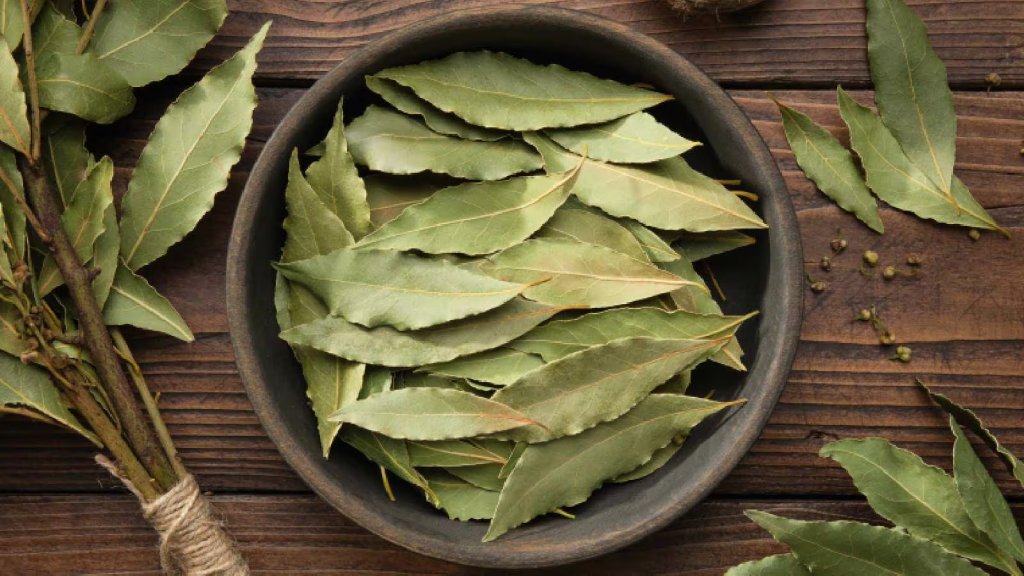
Traditional Uses of Bay Leaves
Long before scientific studies, communities used bay leaves in a wide range of home remedies.
Folk Practices
- Digestive Aid: Bay leaf tea was brewed to ease bloating and indigestion.
- Respiratory Relief: Inhalation of bay leaf steam was believed to open airways.
- Joint Comfort: Oils infused with bay leaves were massaged into sore muscles and joints.
- Spiritual Symbolism: Crowns of laurel were awarded to leaders and scholars as symbols of wisdom and protection.
While not all of these uses are supported by modern science, they highlight the cultural importance of bay leaves across centuries.
What Modern Research Suggests
Scientists have begun studying bay leaves to better understand their potential.
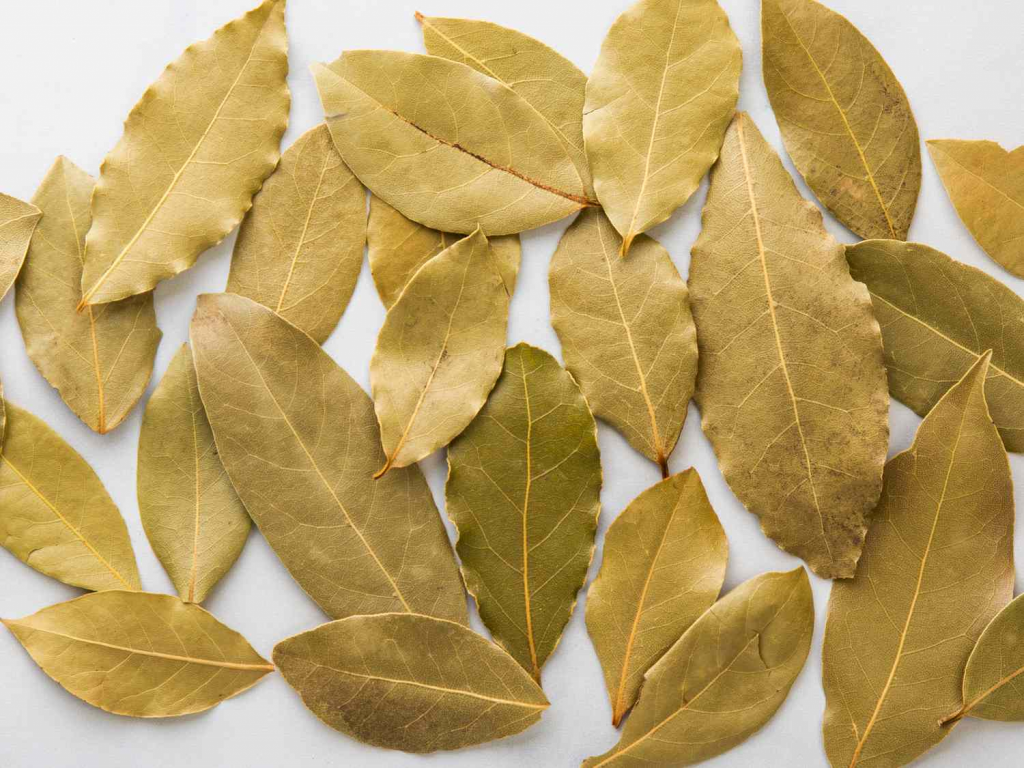
Possible Benefits
- Antioxidant Protection
Flavonoids and polyphenols in bay leaves may help reduce oxidative stress, a factor linked to aging and chronic disease. - Anti-Inflammatory Effects
Animal studies suggest bay leaf extracts may reduce inflammatory markers, which could support joint health. - Antimicrobial Properties
Bay leaf oil has demonstrated activity against certain bacteria and fungi in lab settings. - Digestive Support
Compounds in bay leaves may stimulate digestion and reduce gas, though more human studies are needed.
| Benefit | Active Compound | Potential Effect |
|---|---|---|
| Antioxidant | Polyphenols, flavonoids | Neutralize free radicals |
| Anti-inflammatory | Cineole, eugenol | May reduce swelling and pain |
| Antimicrobial | Essential oils | Support against bacteria & fungi |
| Digestive aid | Terpenes, enzymes | Promote smoother digestion |
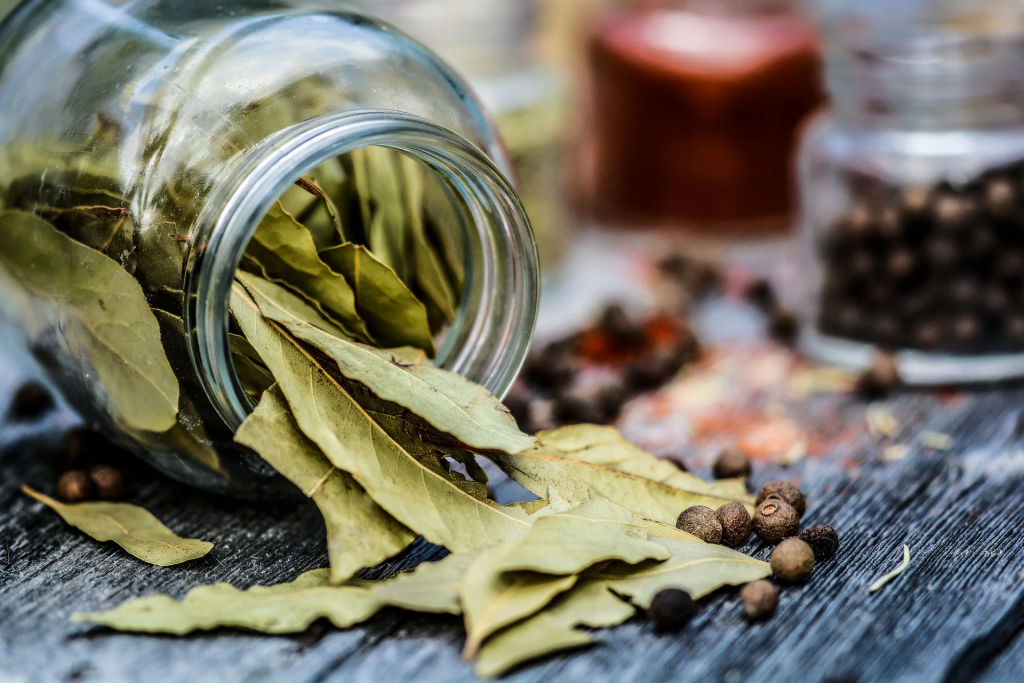
How to Use Bay Leaves Safely at Home
Bay leaves are easy to incorporate into both your kitchen and wellness routine.
Culinary Uses
- Add dried bay leaves to soups, stews, and sauces for depth of flavor.
- Use in marinades for meat or fish.
- Pair with cinnamon, cloves, and peppercorns for spiced tea blends.
Bay Leaf Tea Recipe
- 2 dried bay leaves
- 1 cup boiling water
- Steep for 5–7 minutes, strain, and enjoy warm.
This tea is often consumed after meals for digestive comfort.
Topical Uses
- Bay Leaf Infused Oil: Warm olive oil with dried bay leaves for 15 minutes, cool, and strain. Use as a massage oil for tired joints or muscles.
- Steam Inhalation: Add bay leaves to a bowl of hot water, cover your head with a towel, and inhale steam for 5 minutes to support respiratory comfort.
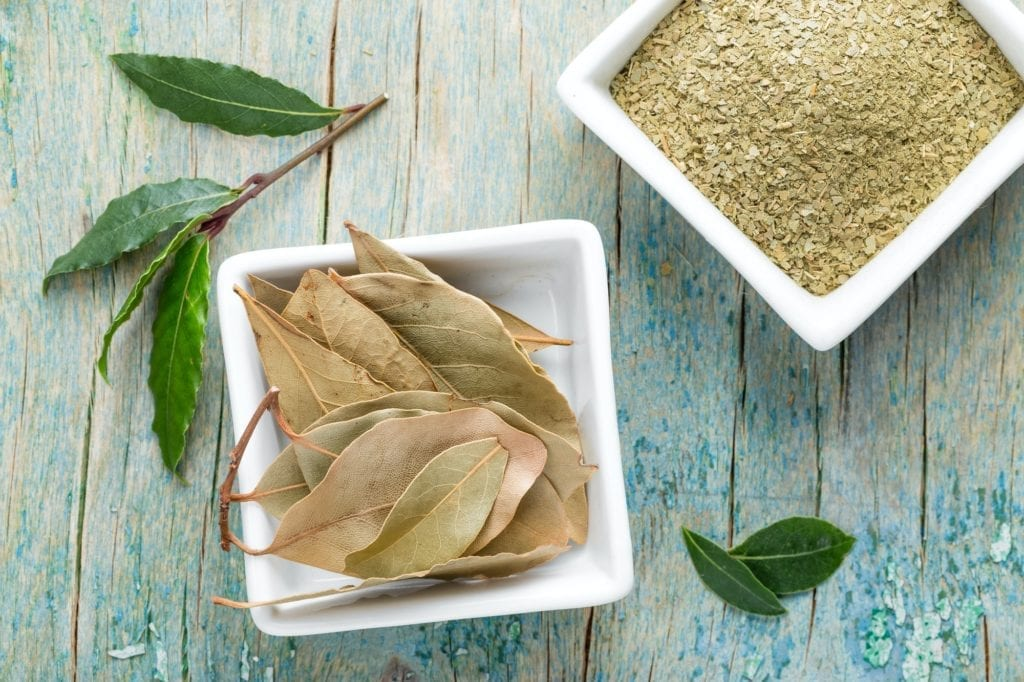
A Real-Life Example: Anna’s Experience
Anna, a 42-year-old chef, often struggled with bloating after long days of tasting and cooking. Instead of reaching for over-the-counter pills, she began drinking a simple bay leaf tea after dinner. Within two weeks, she noticed less discomfort and enjoyed the calming ritual. While it didn’t replace her doctor’s advice, it became a supportive habit she now swears by.
Her story reflects how everyday kitchen ingredients can complement healthy living when used mindfully.
Tips and Precautions
- Don’t eat whole dried bay leaves—they remain stiff and can be a choking hazard. Always remove before serving.
- Moderation is key—one or two leaves per dish is usually enough.
- Check for allergies—rare, but some people may react to bay leaf oils.
- Not a substitute for medical care—bay leaves can support wellness but cannot treat or cure serious illness.
- Pregnant or breastfeeding women—should consult a healthcare provider before using large amounts of bay leaves medicinally.
Lifestyle Habits to Enhance Benefits
Bay leaves can be part of a broader approach to wellness.
- Balanced Diet: Combine bay leaf tea with fruits, vegetables, and whole grains.
- Hydration: Drink water throughout the day to support digestion.
- Exercise: Regular movement helps circulation and reduces inflammation.
- Stress Management: Herbal teas like bay leaf blends can double as a calming ritual.
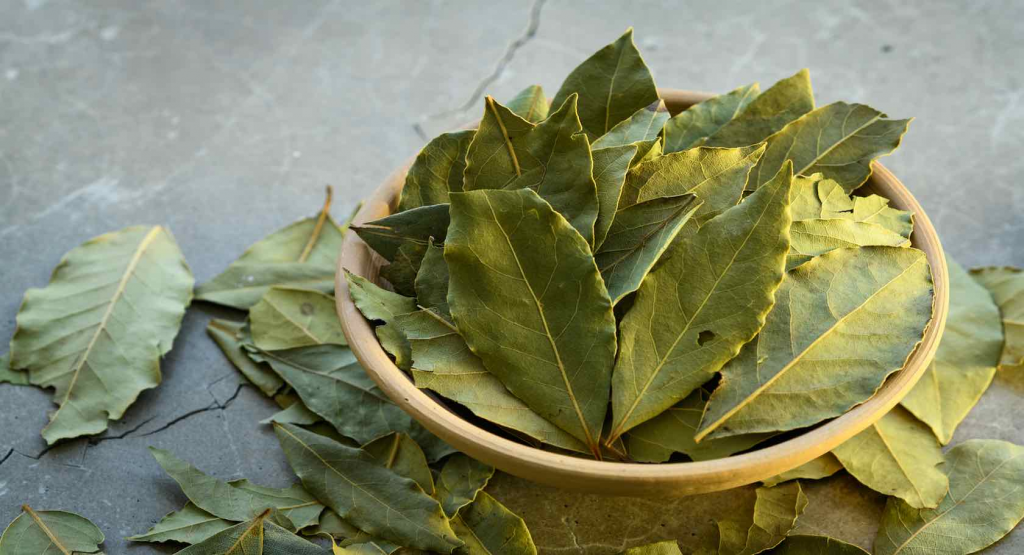
Conclusion
Can bay leaves really improve health?
They contain antioxidants and essential oils that may support digestion, inflammation, and microbial balance.
Are they safe for daily use?
Yes, in culinary amounts. Always remove the whole leaf before eating.
Do bay leaves cure cancer or other serious illnesses?
No. While bay leaves have valuable compounds, they should never replace medical treatments.
How can I start using them?
Add one or two dried leaves to soups, stews, or teas for both flavor and potential wellness support.
This content is for informational purposes only and is not a substitute for professional medical advice, diagnosis, or treatment. Always consult a qualified healthcare provider before trying new remedies, especially if you have existing health conditions.




